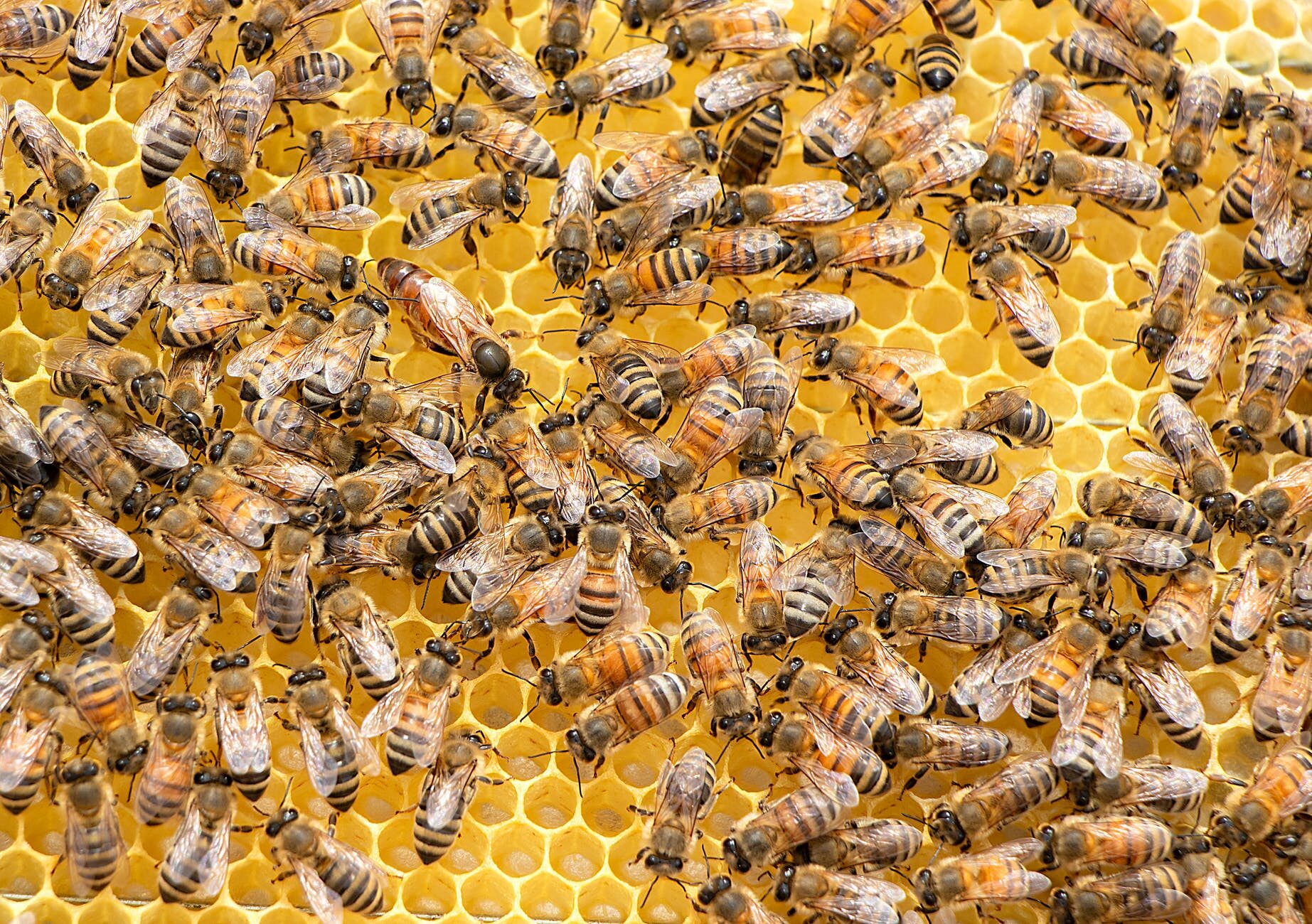Scientists will check which honey has better quality. A special apiary was established

A mini apiary consisting of three hives was built on the premises of the Gdańsk University of Technology. It will be used by scientists, among others: for research comparing the composition of “urban” and “rural” honey.
The university press office announced the installation of a mini apiary on the polytechnic campus – next to the Faculty of Chemistry – on Monday. As explained, the inhabitants of the hives are three – for now small – bee families (so-called nucs) obtained from the Department of Beekeeping of the University of Warmia and Mazury in Olsztyn. Extremely gentle insects of the Kortówka line, a Carniolan breed, were selected for the mini apiary.
Once the bees settle in the new place, a set of sensors will be installed inside the hives, making up a monitoring system called Smartula. This system was created at GUT three years ago. The sensors that constitute its pillar check the temperature, humidity and the intensity of sounds made by the swarm. This data, processed with the help of algorithms developed by scientists from GUT, is provided to apiary owners, allowing them to assess the condition of the swarms – without looking into the hives, which bees do not like.
Apiary with sensors
Since its development, Smartula has been continuously improved. According to the GUT press office, the system will be improved by, among others: sensors installed in a mini apiary created on the university premises. The co-creator of Smartula – M.Sc. Eng. will be responsible for this research. Tymoteusz Cejrowski from the Faculty of Electronics, Telecommunications and Computer Science.
In addition to IT specialists, polytechnic chemists also want to use university beehives. One of them, Professor Robert Tylingo from the Faculty of Chemistry, planned research that included comparing the composition of “urban” honey – produced by bees from the polytechnic and “rural” honey produced industrially in large apiaries.
It turns out that even honey produced in rural regions is often not of adequate quality. The chemicalization of agriculture is very developed, and small-molecule organic pollutants are transferred together with pollen to the hive and later to honey. Smog, which could be a source of honey contamination, does not occur in Gdańsk, so we want to check which honey is of better quality – said Tylingo, quoted in the release.
The press office also informed that the originator of the idea to create a mini apiary at the university was 12-year-old Bolek Jacaszek – a nature lover and beekeeping enthusiast living near the university. The boy’s grandfather built three hives, and all costs related to the purchase of bees were covered by Restudio Jacaszek Architekci Sp. z o. o., co-owned by Bolek’s father – Maciej Jacaszek. The boy himself contributed some of the funds from his own scholarship for academic results. Bolek intends to visit the mini apiary every day.





